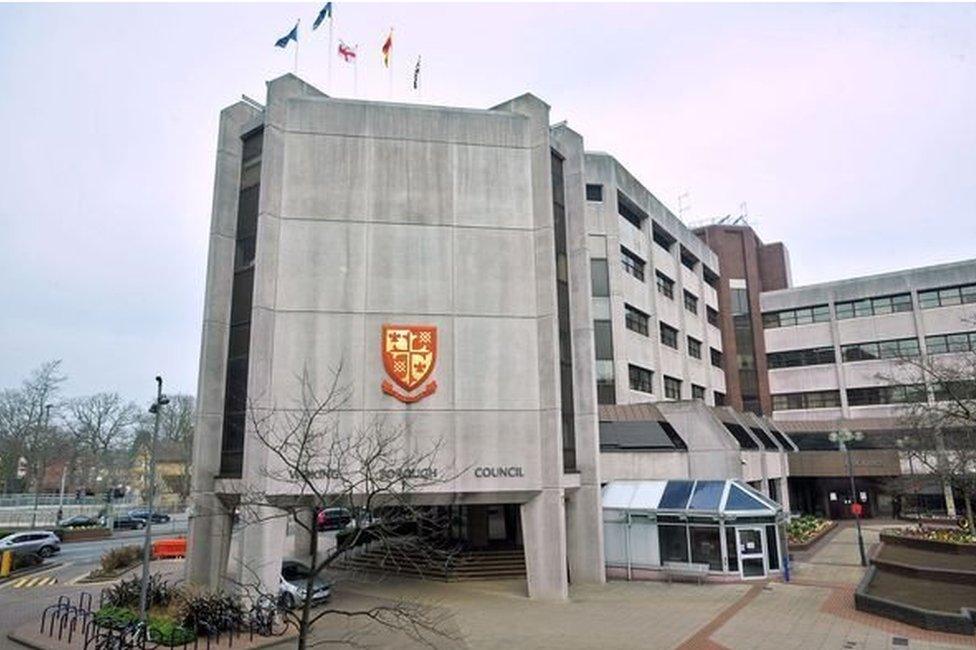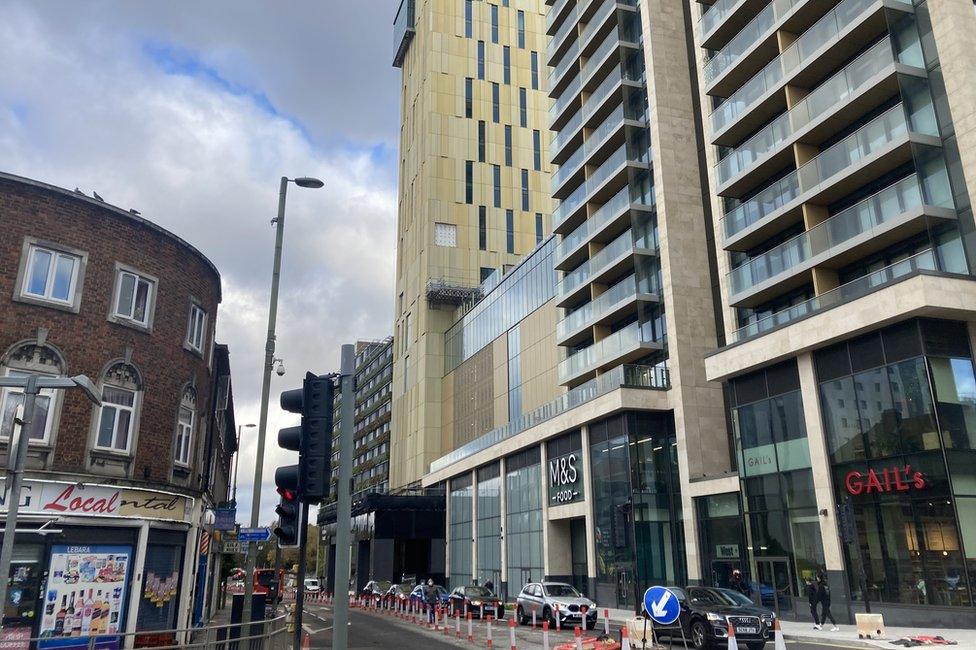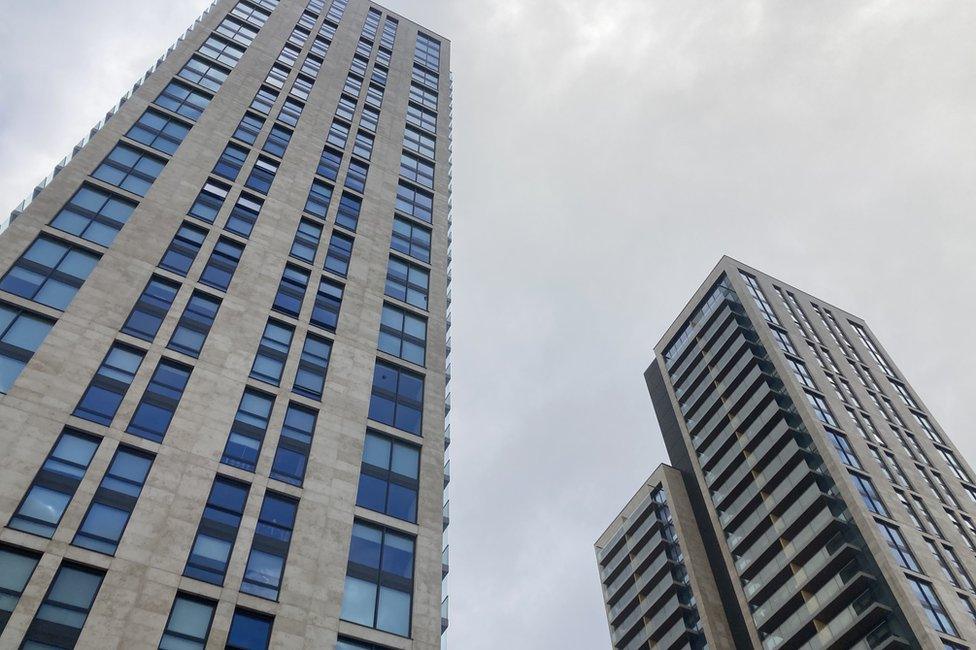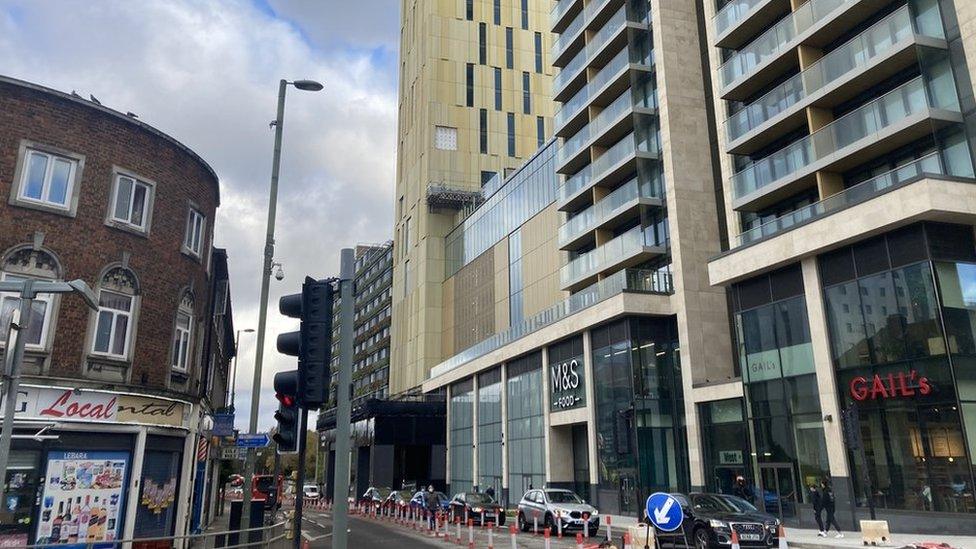Bankrupt Woking Borough Council scraps affordable homes plan
- Published

The council's debt is forecast to hit £2.6bn
Affordable homes have become the first casualty of a council's freeze on new spending after it fell into bankruptcy.
Earlier this month, Woking Borough Council issued a Section 114 notice to halt all non-essential spending as its debts were forecast to hit £2.6bn.
It had planned seven affordable homes at Bonsey Lane but papers have said the project is "no longer viable at the current time and will be closed".
An emergency meeting was held on Tuesday to look at the council's debt.
According to the Local Democracy Reporting Service, the authority had planned the affordable homes "to meet housing standards and local needs, including those for key workers".
Councillor Ian Johnson said: "We did intend to provide seven affordable homes there, but because of the financial situation the council is in we couldn't actually afford to continue with that development."
He said the council would have to work with partners going forward to be able to "provide the homes that we so badly need".

The Victoria Square development is home to shops and retail outlets
Most of the debt came when council bosses borrowed to build town centre skyscrapers in Victoria Place and replace hundreds of homes on the Sheerwater estate.
Interim finance director Brendan Arnold said the council would continue to deliver statutory services, particularly for the vulnerable and homeless.

Analysis
By Jack Fiehn, BBC Radio Surrey political reporter
A mostly solemn and subdued, but sometimes angry meeting has taken place at the civic offices in Woking.
Politicians from the different parties said they wanted to know how this had happened and who was responsible.
The Liberal Democrats, who took over the council last year, said there had been a catastrophic failure of leadership from the previous Conservative administration, accusing them of "gambling" with the public's money.
Conservative councillors said they hoped the latest measures would mean a line could be drawn over what had happened previously.
However, there were also comments about the Liberal Democrats supporting the regeneration and investment plans when they were in opposition and suggestions that everyone needed to take responsibility.
Meanwhile, Labour raised concerns about the impact on Woking's reputation and about protecting residents from any rise in council tax.


Skyscrapers more than 30-storeys high have been built
At Tuesday's meeting, Mr Arnold warned members the figures were "more likely to get worse than to get better".
Chief executive Julie Fisher said the authority would need to dispose of assets and investments, balance its housing revenue and approach the government for support. She said the first iteration of the recovery plan would go before the council in August.
Liberal Democrat council leader Ann Marie Barker said the authority had "got used to living beyond its means". She warned the situation would affect staff, services and residents, adding: "Unfortunately we will need to stop providing some services and also increase charges for some services."
Conservative Kevin Davis said the council needed to learn lessons, adding that he hoped auditors Grant Thornton would "get to the bottom of it". He said the council's main task was "to make sure vulnerable people get the support they need".
Councillors agreed a series of actions including to bridge the budget gap, keep expenditure controls, prepare a revised budget, note the development of a recovery plan, take actions to balance housing revenue, develop an assets disposals strategy and seek government support.
Related topics
- Published15 June 2023

- Published8 June 2023

- Published7 June 2023

- Published25 May 2023
